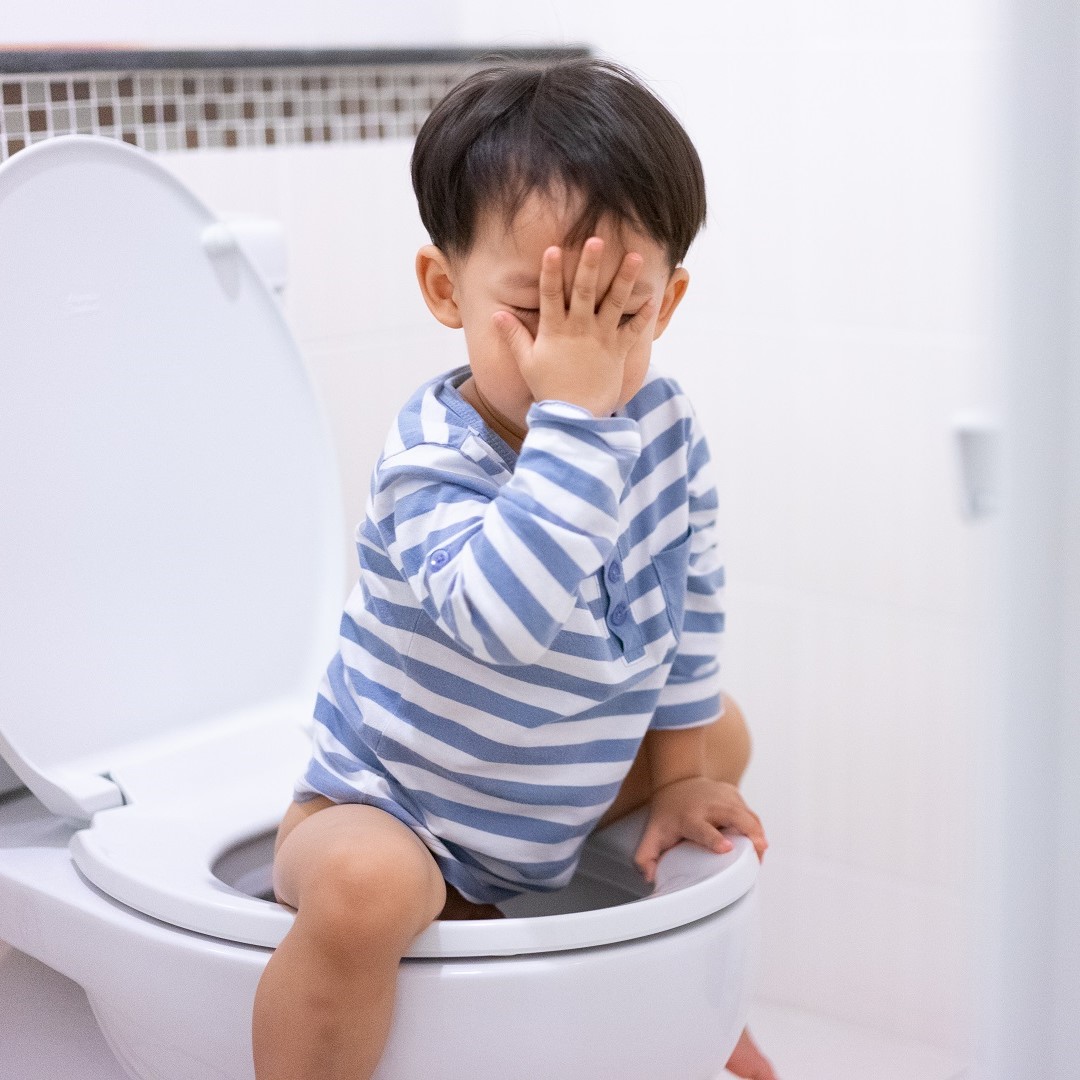Why this happens?
Constipation is usually precipitated due to lack of liquid intake, having less fibre in diet or irregular bowel habit.
It is mostly physiological, however rarely a chronic constipation can be secondary to reduced peristaltic movement of bowels due to conditions such as underactive Thyroid, or very rarely due to a megacolon which usually presents in first few days of life, and usually delays the first passage of stool for more than 48 hours.
In young children it may be precipitated after having an episode of very hard stool causing severe pain and bleeding from the back passage, and the child starts holding the bowel movement due to the sore bottom.
How is it diagnosed?
It is usually diagnosed through a good history and examination. In certain cases with chronic constipation, blood tests may be required the rule out underactive Thyroid.
How is it treated?
Constipation usually resolves through improving the liquid intake and increasing fibre in diet. Children may need a short or long course of Laxative (a medicine to soften stool and stimulate bowel movement). There is no defined duration of this medicine and it can be prescribed for a few days to many months depending on needs.
When should I see a doctor:
If constipation is not improving despite improving the liquid and fibre intake, and persisting, it is advisable to discuss this with your doctor, and he may need to refer to a paediatrician if further advice is needed.





